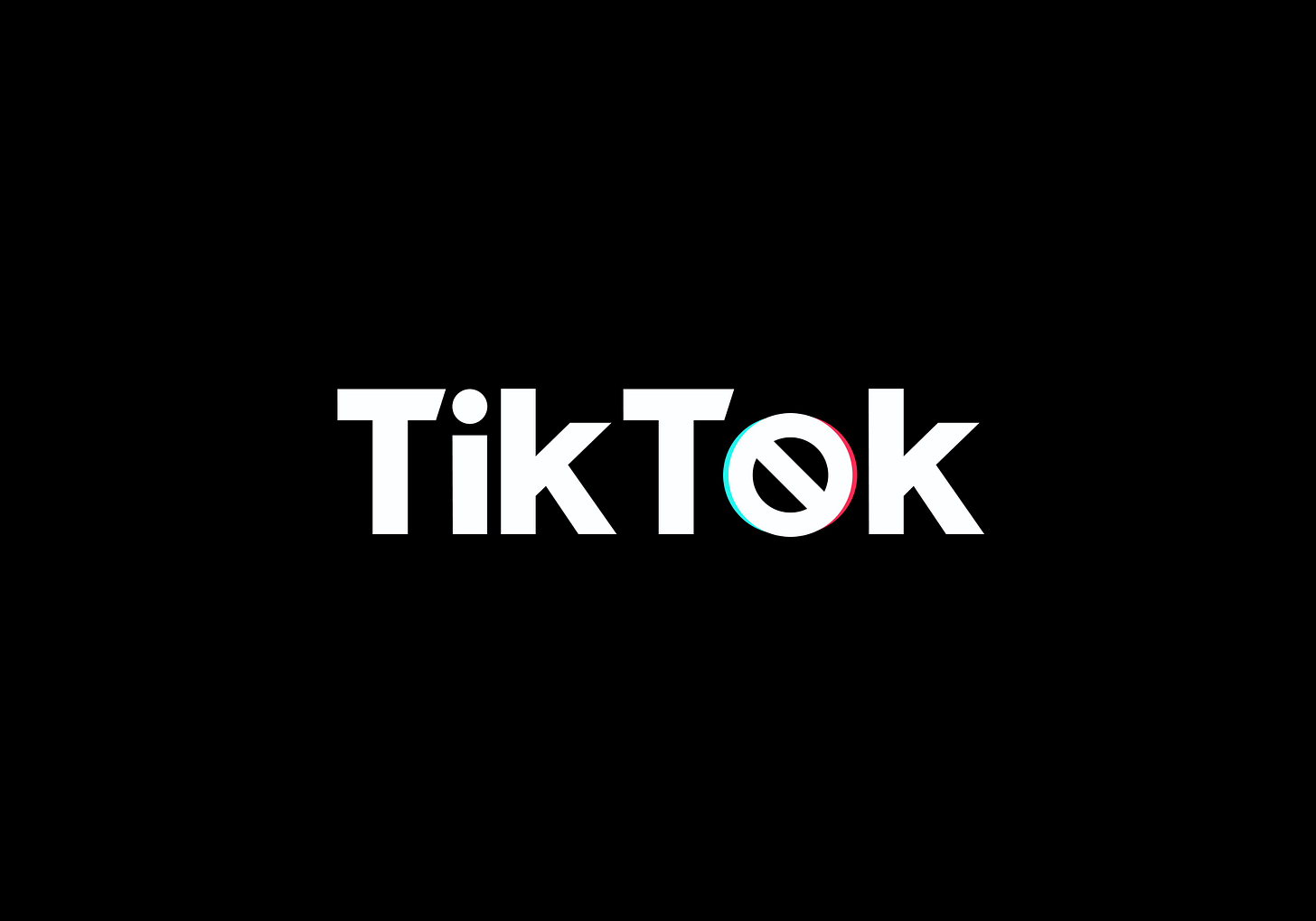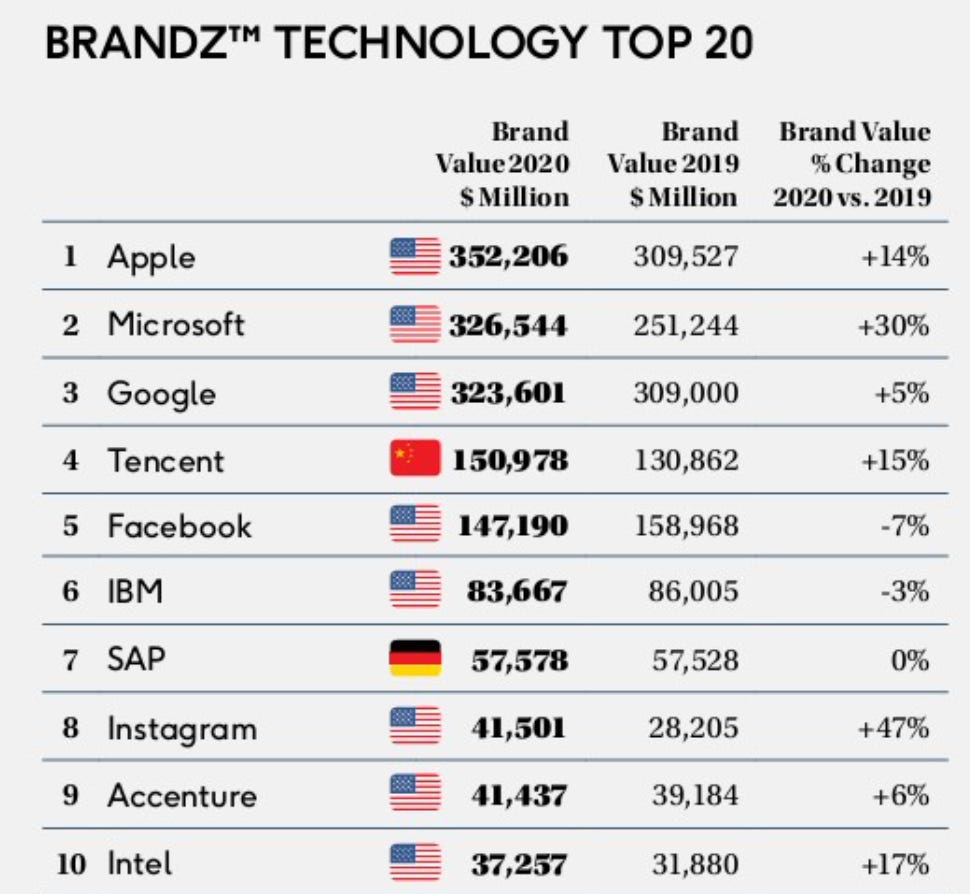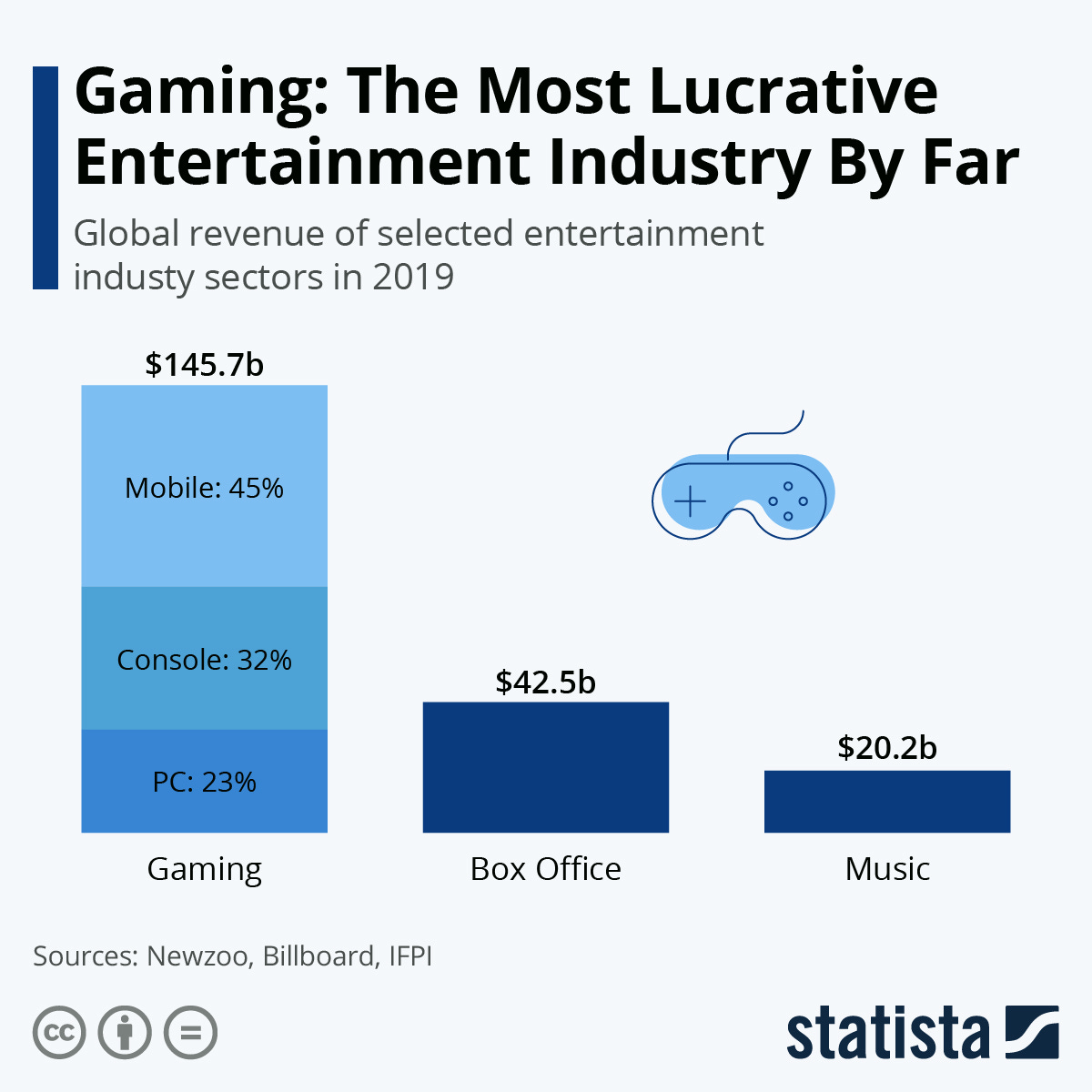Microsoft, TikTok & Trump
Also, Microsoft's ‘Netflix for games’ service is worth your attention.
👋 Welcome to the FWIW by David Tvrdon, your weekly tech, media & audio digest.
🌐 Online version. 👉 Be sure to subscribe, if you were sent this newsletter.
In this edition
🕺 Microsoft, TikTok & Trump
🎮 Microsoft's ‘Netflix for games’ service
💬 Other tech, media & podcasting news

Why does Microsoft want TikTok so much

The answer might not surprise you: data, data, data.
Let’s rewind for a second to just put together what has happened over the last week:
The Trump administration has been looking into TikTok and President Trump said they will take action soon (India banned Chinese apps including TikTok, US was a fan of the move).
After the news broke another story came to light: Microsoft has been in talks with ByteDance to acquire TikTok’s operations in the US, Canada, Australia, and New Zealand.
NY Times has the crazy story of how Trump aides and other Republican politicians persuaded the President to allow Microsoft to pursue this acquisition and not ban a hugely popular social network right before elections.
Microsoft released a blogpost saying CEO Satya Nadella talked to Trump and cleared out things. The President gave Microsoft time until September 15th to end discussions and come to a conclusion.
To understand Microsoft’s motivation here is a key paragraph from The Verge:
TikTok could help correct a Microsoft blindspot and even influence how other software and services are developed inside the company. Microsoft has all the data it needs on business usage of software, but it hasn’t been successful with pure consumer services in recent years, which has left the company with a gap of insight into consumer behaviors.
There are obviously more reasons which we can only guess now and some questions that need to be answered. For example: How do you split an app and operate it separately for selected markets? And that’s a big one, people on Twitter have been trying to answer it but couldn’t to any satisfaction.
Also another big question: Can Microsoft keep up the appeal of a social mobile app aimed at teens? The company does not have the best track record when it comes to social and mobile.
Again, we will see and the acquisition will likely raise questions also from lawmakers regarding antitrust concerns.

🙏 Liked it so far? ❤️ Support this newsletter by sharing it, thanks!

In other news
TECH
🔎 A full-scale probe into Google's takeover of Fitbit. The European Commission is launching a full investigation into Google’s acquisition of Fitbit. Google offered last month to not use Fitbit's health data for ad targeting as a way to please the regulators and failed. [BBC]
Executive Vice-President Margrethe Vestager, responsible for competition policy, said: “The use of wearable devices by European consumers is expected to grow significantly in the coming years. This will go hand in hand with an exponential growth of data generated through these devices. This data provides key insights about the life and the health situation of the users of these devices. Our investigation aims to ensure that control by Google over data collected through wearable devices as a result of the transaction does not distort competition.”
🕵️♂️ We now know how the FBI tracked down the Twitter hackers. After three people were charged with the Twitter hack, the court documents released by the DOJ help us see the timeline of the hack, and how US investigators tracked down the three suspected hackers. It is quite fascinating and surprisingly not that sophisticated as you would think. Good old social engineering at work here. [ZDNet]
+ NY Times has the profile of the troubled teen mastermind behind the hack.
📱 Huawei just became the world's No. 1 phone maker. It overtook Samsung as the world’s biggest smartphone vendor. The Chinese tech giant shipped more phones than any other company in Q2 2020, according to research firm Canalys. More than 70% of Huawei’s devices are now sold in China and because the company is still blocked from using Google services its outlook is that it won’t remain no.1 for long. [CNET]
🤳 Samsung announced new devices. What’s new: The Galaxy Note 20 and Note 20 Ultra, Samsung’s foldable Galaxy Z Fold 2, the Galaxy Tab S7 tablet, the Galaxy Watch 3, and the Galaxy Buds Live. All the specs fit the description of high-end devices and it will be interesting to see how the wireless noise-canceling earbuds will perform. [The Verge]
😎 Google Pixel 4A might be the default Android phone. With a price label of $349 and good specs this should become the go to mobile phone for anyone (not wanting an iPhone). It has earned great reviews for its camera and battery life + also has a headphone jack. What a time to be alive! [The Verge]
👎 Failed Facebook boycott? Major advertisers on Facebook reduced their spending by millions of dollars in July, but not enough to significantly damage the platform’s revenue. [NY Times]

Yes, but: Facebook has seen the value of its brand decline by 7.4% over the past year to according to Kantar’s BrandZ Global Top 100 Most Valuable Brands ranking. It is the second year in a row the social media platform’s brand value has fallen, following a 2% decline last year.

👴🏻 What a President Biden would mean for tech? [Axios]
If Biden wins, the tech industry can probably breathe a sigh of relief in his first 100 days. There won't be late-night tweet storms to contend with. Employees and leaders will be happier on issues like immigration and LGBTQ rights. But the industry will still face an administration shaped by a Democratic establishment that's increasingly hostile to them.
GAMING
🕹️ Microsoft's ‘Netflix for games’ service. The company announced that on Sept. 5th it is launching its cloud gaming (meaning you can eventually play on whatever device you want, don’t need a console) in 22 countries, including Slovakia (!). The service will be bundled as part of the Xbox Game Pass Ultimate subscription, priced at $14.99 per month, with a promise of more than 100 games (like Minecraft Dungeons, Forza Horizon 4, and Destiny 2) available on Android tablets and phones. App Store launch is delayed and apparently no one knows why. Not even Google’s Stadia is available there. [CNBC]
And here is the answer to your question (in case you were wondering), why should you care for the gaming industry:

[In case you were wondering, I double-checked the data, as it is coming from Statista, and it is solid, Nielsen-owned SuperData shows similar results.]
Also, there is a lot of technological innovation going on in gaming, which other industries benefit (i. e. media & journalism, look at FT news games + here is a primer on news games). And that’s not all you can learn from gaming.
Update: The future of Microsoft xCloud is unclear, if not outright doomed on iOS devices. Microsoft hasn’t revealed which Apple (App Store) policies are preventing xCloud from launching on iOS, but Google’s Stadia game streaming service is also not available on iPhones or iPad.
MEDIA
😮 Digital revenue exceeds print for the first time for the NYT company. The Times added 669,000 net new digital subscribers bringing it to 6.5 million total subscriptions (5.7 million digital-only). Its stated goal, 10 million subscribers by 2025 is on the right course. FYI: those 670k subscribers cost $16.5 million to bring in, which is the media expenses category in the earnings report. [NY Times]
💯 Disney has more than 100 million subscribers. That’s on all of its streaming platforms (including Hulu and ESPN+). As of August, Disney+ reached 60.5 million paid subscribers, CEO Bob Chapek said on the company’s earnings call, hitting its goal of 60 million to 90 million subscriptions by 2024, four years early. Disney reported earnings, not impressive. Direct-to-Consumer was the only revenue segment where Disney was up (2%) year-over-year, Media Networks were down 2%; Parks, Experiences and Products down 85%; Studio Entertainment down 55%. Also, Disney’s live-action adaptation of Mulan will be released on Disney Plus on September 4th for $29.99 (that's on top of the $6,99 monthly subscription fee). [TechCrunch]
🗞️ Let’s bundle. Bloomberg Media will launch a bundled subscription with The Athletic (the subscription-based sports website) beginning August. It’s not the first time Bloomberg is doing such a bundle, in February it partnered with the subscription-based tech news site The Information. Bundling has been successful for TV business for years in the pre-Netflix-VOD era, seems like digital media is looking to replicate it for the new age of publishing. Will be interesting to follow (The Athletic also partnered with T-Mobile to offer a free, year-long subscription to the digital sports news publisher). [Axios]
🎥 Instagram Reels launched globally yesterday in over 50 countries, including Slovakia. I started spending more ‘professional time‘ on Instagram and had a go at Reels the TikTok competitor. Did not publish any reels and probably never will. There is a lot of potential for entertainment but within the Instagram app doesn’t make much sense to use it apart from posting something fun once in a while. Yes, I am old and this is something for the next generation. [TechCrunch]
PODCASTS
💰 US Podcast Ad Spending to Surpass $1 Billion Next Year. It was predicted to happen in 2020, due to the coronavirus crisis ad spending was down overall and also for podcasting. By the end of 2020, podcast ad spending in the US will reach $782.0 million, up 10.4% from last year, giving it a 21.0% share of the US digital radio ad market. [eMarketer]
🎧 Apple still #1 podcast app. According to Libsyn, 68.2% of mobile downloads of podcasts are via Apple, Spotify is at 8.3%, and Google Podcasts at 1.3%. [Podnews]
Every month I do the stats for podcasts of my publisher [in Slovak] and have done this the past three years. Apple Podcasts share has been at around 45%, Spotify around 20% (and growing), and Google Podcasts at about 5%. Yes, Apple is still no.1 by far.

📸 by Podnews
Catch me on Twitter or LinkedIn. Was this forwarded to you? 👉 Subscribe over here.



